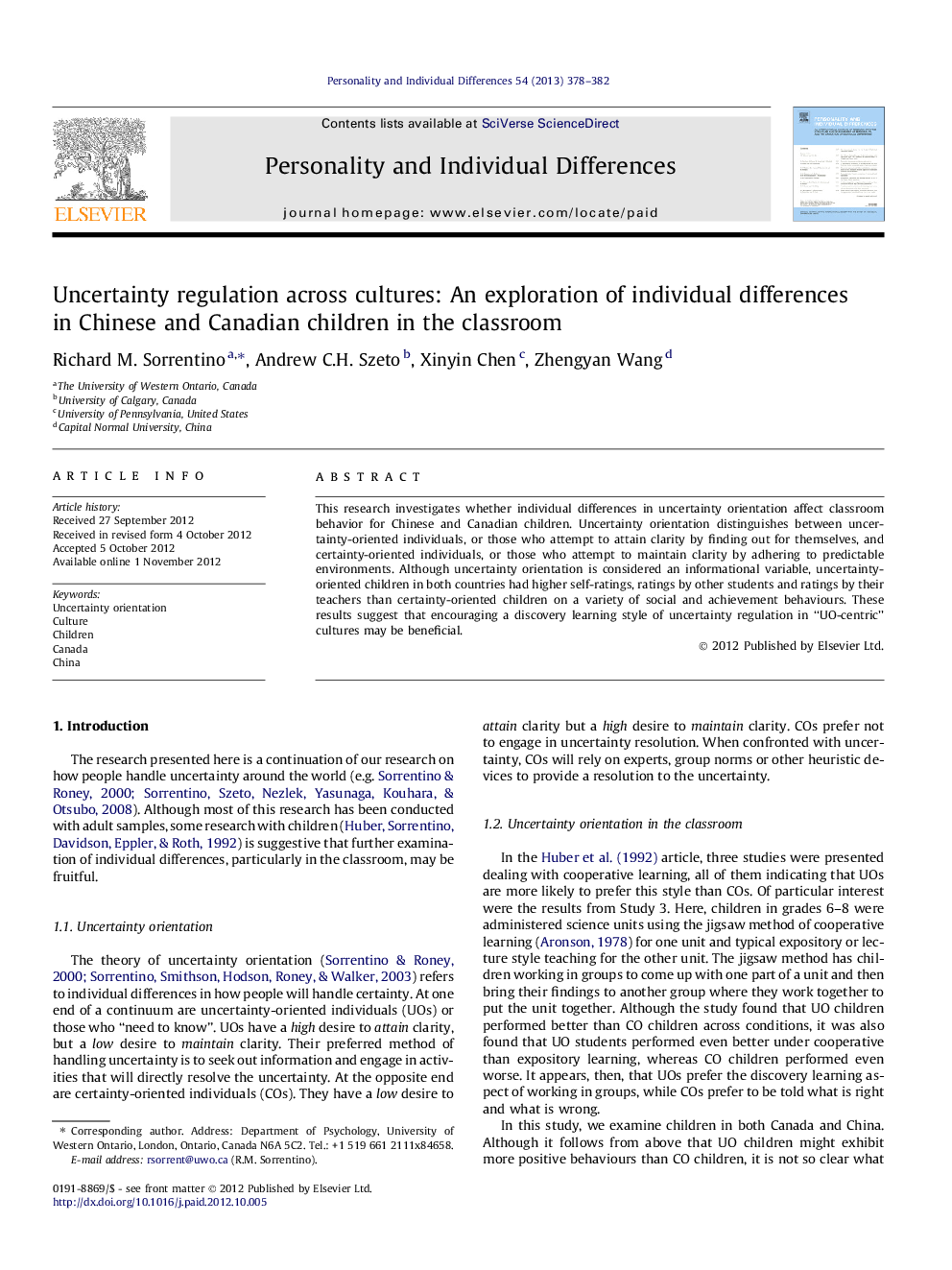| کد مقاله | کد نشریه | سال انتشار | مقاله انگلیسی | نسخه تمام متن |
|---|---|---|---|---|
| 891237 | 914029 | 2013 | 5 صفحه PDF | دانلود رایگان |

This research investigates whether individual differences in uncertainty orientation affect classroom behavior for Chinese and Canadian children. Uncertainty orientation distinguishes between uncertainty-oriented individuals, or those who attempt to attain clarity by finding out for themselves, and certainty-oriented individuals, or those who attempt to maintain clarity by adhering to predictable environments. Although uncertainty orientation is considered an informational variable, uncertainty-oriented children in both countries had higher self-ratings, ratings by other students and ratings by their teachers than certainty-oriented children on a variety of social and achievement behaviours. These results suggest that encouraging a discovery learning style of uncertainty regulation in “UO-centric” cultures may be beneficial.
► Examination of uncertainty self-regulation in Chinese and Canadian children.
► Chinese children were more uncertainty-oriented (UO) than Canadian children.
► UO children in both cultures were better adjusted than certainty-oriented children.
► Both cultures appear to be UO-centric and reward discovery types of learning.
Journal: Personality and Individual Differences - Volume 54, Issue 3, February 2013, Pages 378–382